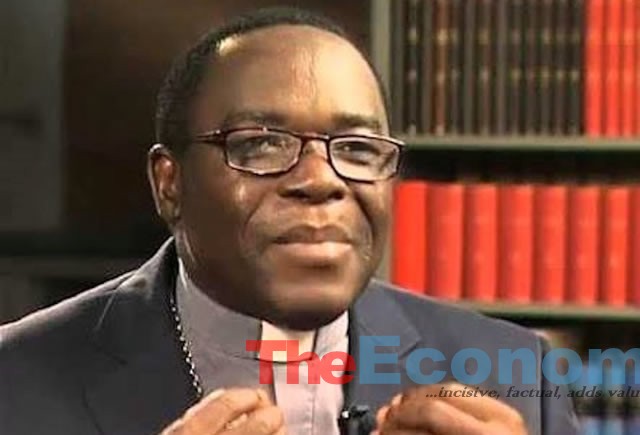The Senior Special Assistant to the President on Media and Publicity, Garba Shehu, on Wednesday faulted the notice to quit handed down by the Sokoto-based Muslim Solidarity Forum to the Catholic Bishop of Sokoto, Matthew Kukah.
The group had in a statement called on Kukah to “quickly and quietly leave the seat of the Caliphate” or immediately stop what it called his malicious vituperations against Islam and Muslims and tender unreserved apology to the Muslim Ummah.
But Shehu in a statement titled “Father Kukah must be allowed to practise his faith and politics,” said the forum’s call was wrong because it was not in line with the nation’s constitution.
He said, “Under our constitution, every citizen has the right to, among others, freedom of speech and expression, the right to own property and reside in any part of the country, and the right to move freely without any inhibitions.”
The presidential aide noted that Kukah had offended many with his remarks against government, adding that groups such as the Muslim Solidarity Forum must, however, uphold the country’s multi-religious principles while individuals like Kukah must respect the feelings of other Nigerians in his utterances
Shehu added, “Father Kukah has greatly offended many with his controversial remarks against the government and the person of the President, with some even accusing him of voicing anti-Islamic rhetorics.
“On matters such as this, responsible leadership in any society must exercise restraint. Knee-jerk reactions will not only cause the fraying of enduring relationships, but also the evisceration of peaceful communities such as Sokoto, the headquarters of the Muslim community as beacon of pluralism and tolerance.
“The Sultanate has historically had good relations with followers of all faiths. That is why Father Kukah was received on his arrival in Sokoto with friendship and tolerance.
“Under our laws, groups or factions must not give quit notices, neither should they unilaterally sanction any perceived breaches. Where they occur, it is the courts of law that should adjudicate. Unilateral action is not the way to go.”



